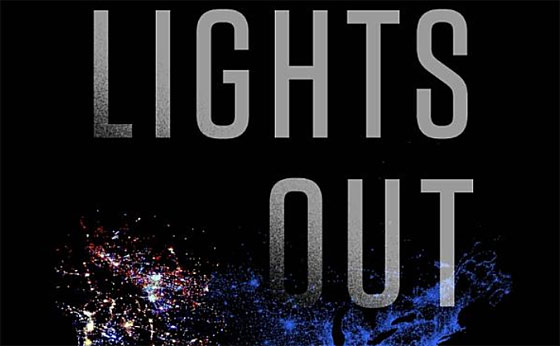What Would Happen If The Internet Went Down
If you want to find out what would happen if the internet went down, at least temporarily, try this and and see what happens in your household… Pull the plug on your internet router. How long will it take before there are inconveniences or upset people in the house – especially the younger ones!
Okay, okay, I know that some of you wouldn’t be affected much at all, except for the ability to read Modern Survival Blog :=)
All of us have experienced short-term outages of our internet service. It happens. It can be inconvenient. However, can you imagine if the internet went down for longer?
Although the internet is designed such that a broken route should find another way to its destination (thus the term, ‘web’), we have all heard of cyber-attacks… These can potentially bring down portions thereof. Wreaking havoc. Sometimes it’s interesting to look at downdetector.com (no affiliation) which shows Real-time problem & outage monitoring of major sites on the internet.
This morning for example, Amazon Web Services (AWS) is experiencing yet another round of issues, just a few weeks after service interruptions crippled internet services. AWS provides cloud computing services to government entities, universities and companies. AWS has become quite integral to the functionality of MANY essential online services spanning all across the spectrum. When they go down, lots and lots of others go down too. I call it a systemic risk.
The above is just one example. There are many others. It is not beyond the realm of thought and possibilities to consider “what if” big chunks of the internet went down for longer than just a few hours or more.
What Happens When The Internet Goes Down?
Social Media Withdrawal Symptoms
Could people survive without their Facebook, YouTube, WhatsApp, Messenger, WeChat, Instagram, TikTok, and all the other social media platforms that exist today? How long until they go into withdrawal symptoms without their constant social ‘connectivity’? OMG, the horror! The gnashing of teeth, the wailing, flailing, and screaming… Give me back My Precious! My Internet!
While this may sound comical, it’s likely close to the truth. But I’m not just talking about social media platforms.
Commerce Grinds To A Halt
Commerce. More importantly, what about our infrastructure of commerce? Without the internet, most all commerce would cease. Other than cash businesses, store transactions would come to a screeching halt, since most require networking with the corporate ‘mother ship’. And that’s just one example.
People pay with their bank cards. These transactions require the internet. What if those systems went down or disrupted? So much of our infrastructure is connected with the internet that the world as we know it would be terribly affected without it. All of the automated systems that work behind the scenes to keep the gears turning.
And to think that we survived without the internet up until just a few decades ago! It’s amazing when you really think about it.
Side note: Did Al Gore really invent the internet?
Seriously, it would be disastrous (nearly close to a power-grid down) if the internet went down.
The Internet Is Resilient, But…
The design of the internet itself is set up for redundancy and resilience. However, there are MAJOR network choke points where most traffic comes and goes. Again, designed with backup contingency network routing, the internet backbone is run by a handful of corporations.
In the early days of the internet, backbone providers exchanged their traffic at government-sponsored network access points (NAPs), until the government privatized the Internet, and transferred the NAPs to commercial providers.
Today’s modern internet backbone… The largest long-distance voice carriers such as AT&T Inc., MCI (acquired in 2006 by Verizon), Sprint, and CenturyLink also own some of the largest Internet backbone networks. These backbone providers sell their services to Internet service providers (ISPs).
Side note: You do know that the government NSA intercepts all traffic, right? .gov would not freely give up their internet without a big time ROI, right?
The Systemic Risk of the Internet
Systemic risk is risk that affects an entire system.
The Internet is itself a system, but it is also a dependency or systemic risk of bigger systems. We depend on the Internet. ‘We’, meaning, most of us. We as individuals depend on it, business depends on it, it is an integral part of our modern way of life.
Stock markets, world finance, and all banking depends upon the instantaneous ‘money’ transfer pipeline to settle transactions. If this ‘light speed’ ability of commerce transaction were to go down…
Communications depend on it. While you as an individual could survive without the ability to text message your friends, the dependency upon instant communications for business is critical. Most all modern communications methods touch the internet in some way. All of our phone (and cell phone) systems need the internet in one way or another.
Supply chains of distribution depend on the various connections of feedback for supply and demand. Today’s ‘just-in-time’ inventory works because of the internet. It enables fast and real-time communications and data interchange to keep the manufacturers aligned with the demand of the distributors and retailers. Without the instant feedback loop, the ‘just-in-time’ system would crash.
The unfathomable depth and volume of the internet as a resource is staggering compared to only a few decades ago. The ability to have access to this resource has revolutionized the way we think, the way we do business, and the way we live. We are dependent on it. This makes it a systemic risk to our modern way of life.
Most of us living in the modern world rely on the internet backbone to survive, whether we realize it or not. Just about everything we do or buy depends on internet connectivity to somewhere.
Remember Before the Internet?
I remember the days of my youth. No internet. Everything was different back then. There were “cash registers” at checkout. No one (hardly anyone) had a credit card back then. There was no email. We sent letters instead. We had to use a device called the telephone. It hung on the wall. We had to remember phone numbers. We spoke face-to-face with people too. And we had to play outside! We ran the streets with friends. Rode our bikes. There were no video games. We played board games, or cards. Humans were forced to interact with each other in the real world. The Metaverse and alternate realities hadn’t been thought up yet… We didn’t have Google. Instead we went to the library. We had Encyclopedias. We couldn’t stream music. Instead we bought records. Then cassette tapes, then CD’s… We read books. There was this thing called a typewriter. I used to wear a ‘beeper’ for my job. There were ‘payphones’. We used paper maps to navigate.
Oh my, how did we survive!
We are living in a different world now. Today, whether you like it or not, we need the internet.

Lights Out: A Cyberattack, A Nation Unprepared, Surviving the Aftermath
(amzn)
[ Read: Is Civilization Just A Thin Veneer Between Civility And Civil Breakdown? ]

